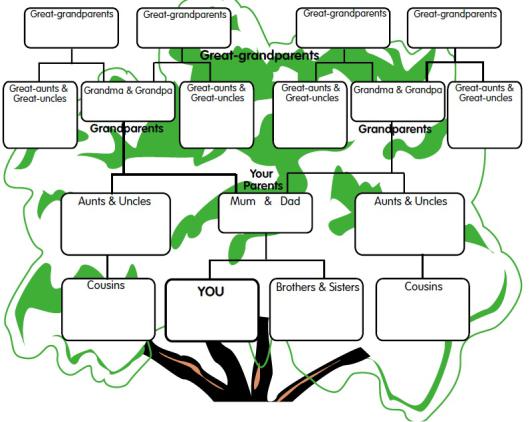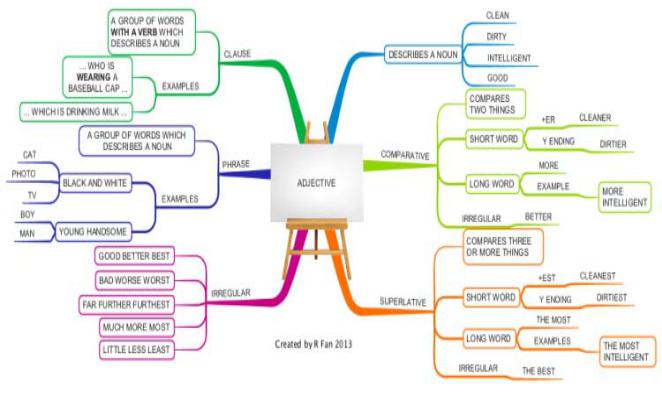
General_English_Semester_1_New_LAST_LAST_doc
.pdf
What I mean is… |
Neither do I. |
That's not the same |
|
I agree with you en- |
thing at all. |
|
tirely. |
I'm afraid I have to |
|
That's just what I was |
disagree. |
|
thinking. |
I'm not so sure about |
|
I couldn't agree more. |
that. |
|
|
I must take issue with |
|
|
you on that. |
|
|
It's unjustifiable to |
|
|
say that... |
Role-play (optional)
A TV channel organizes a talk-show to discuss the problems of the modern family. The participants of the talk show are:
a TV host (leads the discussion, prepare questions, helps the others to follow the script and the plan of the discussion);
a famous politician who thinks that the government should pay more attention and give more support to families;
a pop-star who considers families to be the thing of the past and believes that in future all people will lead free lives without any family ties;
a big family (parents, their three children, a grandmother, a great-grandfather, father’ sister, who is divorced ) who live together;
a single mother with her teenager son;
a homosexual family who want to adopt a child;
a lawyer who suggests to simplify the divorce process;
a family consultant (a psychologist);
a priest who proclaims traditional Christian family values;
guests at the TV studio.
Project work.
1. Read the text about the family tree. Pay attention to the words denoting family relations. Your family tree
Your |
closest |
relatives |
are |
your parents: |
your |
mother and father; |
and |
your siblings (brothers or sisters). |
If |
your mother or |
father is |
not an only child, you |
also |
||
have aunts and / or uncles. An aunt is the sister of your mother or father, while an uncle is the brother of your mother or father. Your female child is called your daughter, and your male child is your son.
If your aunts or uncles have children, they are your first cousins. (In English, the word cousin is used, whether the cousin is female or male.) Your female cousin is your mother (or father's) niece, while a male cousin is the nephew of your mother and father.
In-laws
When you marry, your husband (or wife's) family becomes your in-laws. The mother of your spouse (husband or wife) is your mother-in-law and his or her father becomes your father-in- law. The term in-law is also used to describe your relationship with the spouses of your siblings. So the husband of your sister becomes your brother-in-law, while the sister of your husband becomes your sister-in-law. If you are a woman, you become the daughter-in-law of your husband's parents, and if you are a man, you become the son-in-law of your wife's parents. The same term in-law is used for all generations. The husband of your aunt is still your mother's brother-in-law, for example.
33

Grandparents / grandchildren
The parents of your parents are your grandparents – grandmother and grandfather. You are their grandchildren– either a granddaughter or a grandson. If your grandparent has a sister, she is your great-aunt. If your grandparent has a brother, he is your great-uncle. (And you are either his or her great-niece or great-nephew.)
The mother of your grandmother or grandfather is your great-grandmother. The father is your great-grandfather. If you go back another generation, the grandmother of your grandmother / grandfather is your great-great-grandmother. The grandfather of your grandparent becomes your great-great-grandfather.
Second families
If your mother or father remarries, you can acquire a new family and set of relatives. For example, if your father marries a second wife, she
becomes your step-mother. Any children she already has become your step-sisters or stepbrothers.
If your mother or father remarries and has
children, |
they |
become |
your half- |
brothers or half-sisters. |
|
||
You might also hear people talking about their biological brother / sister etc, to mean a brother who is related by blood, rather than by marriage.
(From http://www.english-at- home.com/vocabulary/talking-about-your- family/)
2. Fill in the crossword puzzle
Across
5. the father of one's father or mother
7. one's husband or wife
9. a female child
11. a son of one's brother or sister or of one's brother-in-law or sister-in-law
Down
1.the father of one's husband or wife
2.the husband of one's daughter
3.a son or daughter of any age
4.a boy child of one's son or daughter
6. a man or boy in relation to other children of his parents
8. the wife of one's son
10. the sister of one's father or mother or the wife of one's uncle
34

3. Study your family history. Create your family tree. Make up presentation. Choose the best one.
2.4 Family Values
Lead in.
What do you think basic human values are ?
Do basic values differ in different cultures?Give examples.
What is valuable to you?
Reading and vocabulary. |
|
|
1. |
Check the words in the box |
|
|
●belonging ●flexibility ●respect |
●honesty ● forgiveness ● generosity ● communication ● re- |
|
sponsibility ● freedom ●occasion |
●sense ● enforce ● make a decision● take into account● |
|
acknowledge●contribution ●fear ●foundation ●relationship● encourage ●keep in |
|
|
mind●empathy ●mis/understanding●issue ●bond ●draw together |
|
2. |
You are going read the post in Sherri Kruger’s blog about family values at |
|
http://www.zenfamilyhabits.net. Read the first passage where the author defines family value. Express your point of view. Think how you could define what family values are to you.
35

How do you define family values? In our home family values are rules or ideals that, as a family, we agree to live by and stay true to. The list of essential family values would be a mile long no doubt and the top 10 lists for each family would be as unique as the one that came up with it.
Having strong well defined family values helps solidify the foundation for a strong, tight knit family. When cultivated long enough this closeness provides a soft place to fall when life doesn’t go according to plan. Strong and consistent family values are important in building trust and confidence in each family member.
3. Read paragraphs 1-4 of the text for general understanding. Mark the statements as true (T) or false (F)
T F
Belonging means a feeling of being loved and that you matter. You require flexibility in making decisions
If you are feared you are respected.
Honesty helps to create deep connection between family members
1) Belonging. It is important that each member of my family feel that they are loved, that they belong and that they matter. Creating a strong family unit is great but each person should be allowed the space and freedom to explore the activities they think they may enjoy. Coming together for special occasions and holidays and just spending time together as a family is what helps build that sense of belonging.
2.)Flexibility. The more flexibility you have in decision making, for example, the happier your family will be for it. Imagine one member of the family always thinking they are right and enforcing their way of doing things. This certainly wouldn’t lead to much happiness within the family unit.
3)Respect. For my family, to respect each other is to take feelings, thoughts, needs, and preferences in to account when making decisions. It also means acknowledging and valuing everyone’s thoughts, feelings and contributions to the family as a whole. Respect is indeed earned and there is a very fine line between it and fear. The only way to earn and keep someone’s respect is to first show them respect yourself. Respect as an important family value will extend out of the home and into school, work or other social settings.
4) Honesty. This is the foundation of any relationships that are meant to last. Mother-daughter, husband-wife, sister-brother. Without honesty a deeper connection will not form and certainly
36

won’t last. Encourage honesty by practicing understanding and respect when someone tells you of their wrong doings.
4. Go on reading. Mark the statements as true (T) or false (F) T F
Nobody is perfect , everyone can make a mistake
Generous person is ready to give money to people who need it. Miscommunication leads to unhappiness
Responsibility is an inborn quality
5)Forgiveness. Forgiving people who have wronged you is an important choice to make. Yes, forgiveness is a choice. Keep in mind that everyone makes mistakes, we all occasionally say things we wish we hadn’t and non of us are perfect.
6)Generosity. Giving without thinking “what’s in it for me” is an important value for anyone wanting to be a responsible, contributing member to society. Through generosity we build empathy since we tend to think more about what people want or need. Being generous doesn’t mean simply handing over money to someone in need. It can also include giving your time, love, attention or even some of your possessions.
7). Communication. A failure to communicate may lead to unhappiness and misunderstandings. Communication is a lot more than simply speaking your mind. In addition to spoken words, communication also extends to tone, volume, expression, eye contact, body language and effective listening. When people feel they can talk openly about anything – hopes, dreams, fears, successes or failures – all without judgment, it’s encouraging and strengthens the bond.
8)Responsibility. We’d all like to be considered responsible people. Some of us are and some of us are decidedly less so. Responsibility is something that is learned. As a child you may have been shown how to put your toys away after playing, how to tidy your room or how and when to feed the dog. This sense of responsibility extends well into adulthood. An adult who has an intrinsic sense of responsibility comes to work on time, returns phone calls or meet deadlines.
5. Read the text once again and point out words and phrases describing values. Fill in the table as in the example.
belonging |
feeling of being loved, having personal |
|
freedom and space |
|
|
|
|
|
|
|
|
|
|
|
|
|
|
4. Answer the questions
1)What does belonging to a family mean?
2)What does flexibility imply?
3)How to gain respect?
4)Why is honesty so important?
5)Is it necessary to forgive people?
6)What is generosity?
7)How to achieve communication?
8)Shall we learn how to be responsible?
37

Grammar spot
1. How nouns are formed? Noun forms can derived from verbs, adjectives and nouns with suffixes. To learn more visit http://www.grammar-quizzes.com/noun-forms.html
-AL- condition, quality |
-NESS state, quality, condition |
-ARIAN - holders of a particu- |
arrive-arrival |
happy-happiness |
lar doctrine – human- |
|
|
humanitarian |
-ANCE/ENCE- |
-ITY state or condition – ac- |
-EE – person/instrument –train |
action,state.condition, quality – |
tive-activity |
– trainee |
attend – attendance |
|
-EER – person concerned with |
-ATION/TION– action or re- |
-ISM – state, practice – hu- |
|
sulting state educate - educa- |
man-humanism |
–engine – engineer |
tion |
|
-IST – person, who practices – |
-SION – action or resulting |
-TH – condition – long - length |
|
state – decide – decision |
|
terror-terrorist |
-URE – action or resulting state |
-Y – condition – honesthon- |
-STER – person connected to – |
– depart – departure |
esty |
young – youngster, game – |
|
|
gamester |
-MENT – state , act, condition |
-ERY – location, collective – |
|
– agree– agreement |
brave-bravery |
|
-AGE –action, state, process – |
-TY – condition – safe-safety |
|
break – breakage |
|
|
-ING action, state, process – |
|
|
land – landing |
|
|
-ERY location, collective , |
|
|
condition – bake – bakery |
|
|
2. To learn more visit http://www.grammar-quizzes.com/noun-forms.html. Point out other examples. Make up your own table or a mind map.
Vocabulary
1. Here is the list of other values. Tick which of them are important to you . Underline noun suffixes.
beauty |
friendship |
respect |
being loved |
happiness |
security |
being responsible |
harmony |
self-assertion |
being self |
health |
self-confidence |
commitment |
helping others |
self-control |
cooperation |
honesty |
self-preservation |
creativity |
integrity |
self-realization |
curiosity |
interdependence |
solitude |
education |
justice |
status |
empathy |
making others happy |
success |
fairness |
ownership |
wealth |
family |
personal growth |
wholeness |
food/warmth/shelter |
power/authority |
wisdom/intelligence |
freedom |
prestige |
work |
38

2. What is in your top values? Rank the list of values
|
|
Very im- |
Somewhat |
Not im- |
|
|
portant |
Important |
portant |
|
|
|
|
|
|
|
|
|
|
|
|
|
|
|
|
|
|
|
|
|
|
|
|
|
|
|
|
|
|
|
|
|
|
|
|
|
|
|
|
|
|
|
|
|
Improve your study skills  Developing writing strategies
Developing writing strategies
Learn how to improve your writing. A few easy tips can already help you. Read our suggestions and, if possible, try to practise the various steps.
SUGGESTIONS FOR IMPROVING YOUR WRITING SKILLS
Before you write
Decide why you want to write and who your audience will be.
To decide on a topic: brainstorm ideas and organise them as a mind-map. Highlight important keywords. Think of links between the keywords and draw lines etc.
Decide on a concrete topic and gather your ideas together. Take notes.
Use a dictionary and look up important vocabulary and phrases.
If you feel that you do not know enough about your topic, then do some research and read more about it.
Texts in the foreign language can help you to find useful phrases and words for your topic.
Collect your ideas and research results and put them together into a possible outline.
While you are writing
Create a first draft using your collected ideas. It is not important yet that the spelling or grammar make sense.
Read your ideas. Then check whether those thoughts are what you really want to say.
If you don’t know how to continue, take a break and put your writing away for a while.
Return to your writing with fresh eyes. Maybe new ideas come to mind.
Edit your draft: move, remove or rewrite sections that you feel need correction.
Continue to write and edit until you feel that the result is your final draft.
Hand your writing to someone else for proofreading. Maybe they can give you some new ideas.
After writing
Review the suggestions of improvement given by your proofreader. Edit your draft again.
Proofread your final draft, check spelling and grammar as well as coherence of the contents.
Continue to edit until you feel that the result is your final piece.
(From http://www.learning-english-online.net/skills/writing/)
Speaking and writing
You are a journalist. Use questions to interview your partner about family values. Write a short post in the blog
39

Unit 3. Is it easy to be Young? 3.1 Generation Gap
Lead-in
What does it mean to be young? What do young people want?
What is generation gap? Does it really exist?
What are the causes of numerous misunderstandings between generations? How can parents and children overcome these conflicts?
Make a list of things you differ in with your parents/grandparents (worldview, clothes, tastes, etc). Do you argue about these things?
Reading and vocabulary. 1. Check the words in the box
●dependent ● useful ●bored ● lonely ● immature ● nervous ● active ● patient ● wise ● careful ● boring ● interesting ●mature ● independent ● shy ●careless ● strange
2. Before reading discuss following.
Do you follow your parents/grandparents advice?
Do you find young people sometimes too self-assured? What about you? In what spheres you think you are more competent than your parents/grandparents?
3. Read the title of the text. What do you think the text is about? Scan the text to check if your guesses were correct.
THE YOUNGER GENERATION KNOWS BEST
Old people are always saying that the young are not what they were. The same comment is made from generation to generation and it is always true. It has never been truer than it is today. The young are better educated. They have more money to spend and enjoy their freedom. They grow up more quickly and are not so dependant on their parents. They think more for themselves and do not so blindly accept the ideas of their elders. Every new generation is different from the one that preceded it. Today the difference is very marked indeed.
The old always assume that they know best for the simple reason that they have been around a little longer. They don’t like to feel that their values are being questioned or threatened. And this is precisely what the young are doing. They take leave to doubt that the older generation has created the best of all possible worlds. What they reject more than anything is conformity. Office hours, for instance, are nothing more than enforced slavery. Wouldn’t people work better if they were given complete freedom and responsibility? And what about clothing? Who said that all men in the world should wear dull grey suits and short haircuts? If we turn our minds to more serious matters, why have the older generation so often used violence to solve their problems? Why are they so unhappy and guilt-ridden in their personal lives, so obsessed with mean ambitions and the desire to amass more and more material possessions? Haven’t the old lost touch with all that is important in life?
These are not questions the older generation can shrug off lightly. Their record over the past fifty years or so hasn’t been exactly spotless. Traditionally, the young have turned to their elders for guidance. Today, the situation might be reversed. The old, if they are prepared to admit it, could learn a thing or two from their children. One of the biggest lessons they could learn is that enjoyment is not “sinful”. Enjoyment is a principle one could apply to all aspects of life. It is surely not wrong to enjoy your work and to enjoy your leisure. It is surely not wrong to live in the present rather than the past or future.
Notes
guilt-ridden – страдающий комплексом вины shrug off – сбрасывать со счетов
40

4. Read the text once again and mark the following statements as true (T) or false (F): T F
1)Old people are better educated than young people
2)Every new generation is different from the one that preceded it
3)Values of the older generation are questioned by the younger one
4)The young think all people should be different
5)The questions of the youth are easy to answer.
6)Only young people can learn from the old, never vice versa
Vocabulary Practice
1. Give the Russian equivalents to the following words and phrases:
●conformity ● enforced slavery ● complete freedom and responsibility ● mean ambitions ● blindly accept ● to precede ● guidance ● spotless ● sinful ●to shed restricting inhibitions ● material ● possessions.
2.Read the text once again and explain the words in bold. Translate the sentences with them
3.Match the words in italics from the text with their synonyms below.
1)refuse – _________________
2)duty – _______________
3)well-informed – ____________
4)ideals– ____________
5)cruelty– ____________
6)take for granted– ____________
7)supervision– ____________
8)agreement– ____________
9)to get rid of – ____________
10)age group– ____________
Read 10 expressions about the age. Translate into Russian.
She is in her early twenties (=20 – 23 years old)
She is in her thirties (=37 – 39 years old)
She just turned six.
Act your age (use this when an adult is being immature, acting like a child)
I’m not as young as I used to be.
He is no spring chicken (= he isn’t young)
She’ s wise beyond her years (she is young, but she has wisdom of an older person)
I’m having a senior moment (= being forgetful)
She lived to a ripe age (=a very old age)
I’m not over the hill yet (over the hill=an informal expression to say “old”)
Grammar spot
1.Go to Grammar Focus to study the theory about the adjective. You may also use a) http://www.study.ru/support/handbook/adjective1.html (in Russian); b) http://www.grammar-quizzes.com/adjectivesum.html
41

2. Study the mind map. What information is missing? Make up your own mind map.
3. Check yourself. Go to http://www.grammar-quizzes.com/adj-diagnostic.html 4.Use the correct form of adjective
1) The information has never __________ than it is today (true/ truer).
2) Nowadays young people are _____ _______ than a few decades ago (more educated/ educated).
3)The old always assume that they know _______(best/better) because they have lived (long/longer)
4)One of the ________ (big/biggest) lessons the _______ (old/older) generation ca learn is to enjoy life .
5)Young people are ____________ (good/well) educated than young people
Improve your study skills  Developing speaking strategies
Developing speaking strategies
You probably want to be able to speak the foreign language you are learning. You want to
communicate with others and be understood. Read and apply our tips below and enhance your speaking skills.
SUGGESTIONS FOR IMPROVING YOUR SPEAKING SKILLS
Speak, speak, speak! Practice is essential. Get in touch with native speakers or other foreign language learners and use the language in communication. It's okay to make mistakes.
In your every day life, make up a dialogue in your head for the situation you are in: think about how you could order something to eat in English when you are at a restaurant; how you could ask someone for help when you are lost; how you can buy a ticket for the train when you plan to go somewhere, …
Buy a small dictionary and carry it around with you. When you make up dialogues, use it to look up unknown words.
42
